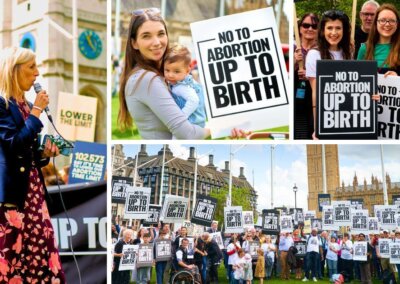A health regulatory agency is meeting this week to discuss the possible use of artificial wombs for prematurely-born babies.
While researchers have already tested the technology on lambs in 2017, advances have since been made that make human trials a possibility. The Food and Drug Administration (FDA), the US public health regulatory body, is now considering whether this technology should be trialled in humans.
The technology is not able nor intended to gestate a baby throughout all nine months of pregnancy, but mimics the conditions of the womb for babies born before 28 weeks gestation, who are considered extremely premature.
Unlike incubators, artificial wombs use synthetic amniotic fluid in a temperature-controlled ‘biobag’. Underdeveloped lungs and brain are one of the main difficulties facing extremely prematurely-born babies who are at particular risk of resulting health problems such as trouble breathing, gastrointestinal issues, vision and hearing problems, and developmental delays.
A potential game-changer for prematurely-born babies
Arteries in the umbilical cord are extremely small and begin to contract as soon as a baby is delivered, making the connection with an artificial womb difficult. Anna David, a maternal–fetal specialist at University College London, said the transfer of a prematurely-born baby to an artificial womb “has got to be really slick”.
According to reports, before the FDA would approve human trials for artificial wombs, researchers would need to show that the wombs could facilitate growth and development while also improving mortality rates and reducing health problems when compared to conventional incubators.
According to Bloomberg, a number of research teams are working on artificial wombs but the group Vitara Biomedical, working out of the Children’s Hospital of Philadelphia, is closest to creating one suitable for human trials.
Bioethicist and neonatologist at Columbia University Medical Center in New York, Kelly Werner, said “This is definitely an exciting step and it’s been a long time coming… [and clinicians] who work with premature babies will be closely following this meeting”.
The artificial womb “would bridge a baby born extremely premature through those days and weeks when they’re most at risk for lung and brain damage”, Werner added.
What does this mean for the debate about abortion?
Artificial wombs raise questions about the natural relationship between mother and child and the ethics of abortion. Commenting on this issue last year, pro-life advocate, Madeline Page said “Part of me thinks that it could be quite a good thing for the pro-life movement. It will enable us to re-humanise the unborn”.
She went on to argue that supporters of abortion might be “quite anxious… because obviously now women would have the option to, if they didn’t want to be pregnant, to put their child into an artificial womb”.
Arguments for abortion based on bodily autonomy, epitomised by the slogan “my body, my choice”, seem to be undermined by the introduction of artificial wombs because, with artificial wombs, a woman would not have to end the life of her unborn baby through abortion to maintain her autonomy (at least according to the argument), but would be able to remove the child and place him or her in an artificial womb.
Madeline went on to argue that artificial wombs do “have other implications for the natural side of things and the bond between mother and child”.
“The NHS talk a lot about… the importance of that bond, that natural bond between mother and child that happens while the child is in the womb…”.
Right To Life UK spokesperson, Catherine Robinson, said “Insofar as this technology enables more extremely premature babies to live healthy lives, it is certainly a good thing. However, the possible severing of the mother-child relationship in pregnancy that could result from the use of artificial wombs will not be without consequence”.
“Artificial wombs raise acute questions for the supporters of abortion because, in theory, the bodily autonomy argument that is used by abortion supporters has no basis since it would be possible to end a pregnancy without ending the life of the baby. It is possible that when this technology comes about, we will indeed see the abortion lobby’s ‘true colours’.”










